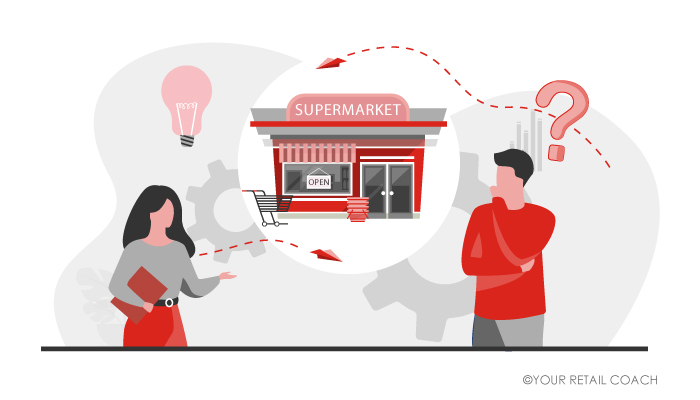Starting a Supermarket: Your Retail Coach’s 7-Step Winning Formula

Pune, Maharashtra, India: For any proposed business venture, a strong foundation of planning is quintessential. Starting a supermarket business is no exception. All the relevant aspects of the business must be well-planned so that the sailing is smooth and the venture is profitable and sustainable.
Developing a sound business model
Developing a business model entails chalking out the financial aspects of a proposed venture. It includes estimation and projection of capital investment, operating costs, breakeven sales, and ROI. Decisions on rentals, margins, and budgets also form an important constituent of business model development.
Creating a UVP
In a supermarket business, it is difficult to create a USP or UVP because of the homogeneity factor. Here, a market niche can be created through better services and infrastructure, competitive pricing, and other strategies to deliver superior customer experience.
Deciding on the location
Populated residential or commercial areas offer a higher probability of more footfall and sales. Landing up in a competitive market area could be a good strategy with a stronger and not easily replicable USP. Areas where there are no existing stores or where the residents have to move out of their localities for purchases are also good prospects.
Choosing the product categories
The two big supermarket product categories are food and non-food. While the food products bring more customers the non-food category offers better margins. Maintaining the right balance between these two categories is the tricky part.
SOPs for every department
SOPs need to be established for every department like sales, merchandising, purchase, inventory, housekeeping, security, IT, accounts and cash counter, HR, etc. SOPs serve as an operational roadmap for employees and makes supervision, monitoring and improvisations easier.
Organization structure
Wages and salaries paid to employees is one of the most expensive items in the cost sheet of a business enterprise. Maintaining a lean organization structure without compromising on the business operations is critical for higher profitability and remaining competitive. Some of the important decisions to be made here are the positions required, defining the job profiles, departmentation, salary determination, etc.
Layout Planning
The profit per square feet is a critical measure of profitability in the retail industry. For optimum utilization of space without compromising on customer experience, careful layout planning becomes essential. It includes deciding on the entry and exit points, the location of the cash counter, placement of racks, ease of movement of people and goods, etc.
IT and digital systems
From managing store operations & inventory, to order fulfilment in the back-end to providing customers with a seamless, speedy, and error-free shopping experience, a robust Software and digital infrastructure is a must for supermarkets.
You can hear our principal consultant explaining this 07-Step Winning Formula on How to start a Supermarket here.
Ecommerce supermarket option can also act as an important digital touchpoint for online customers. To ensure a better website/app UX, important factors like the user interface, ease of navigation, language and device support, data security, payment method flexibility, etc. must be considered.
Disclaimer: This content is distributed by Business Wire India.

